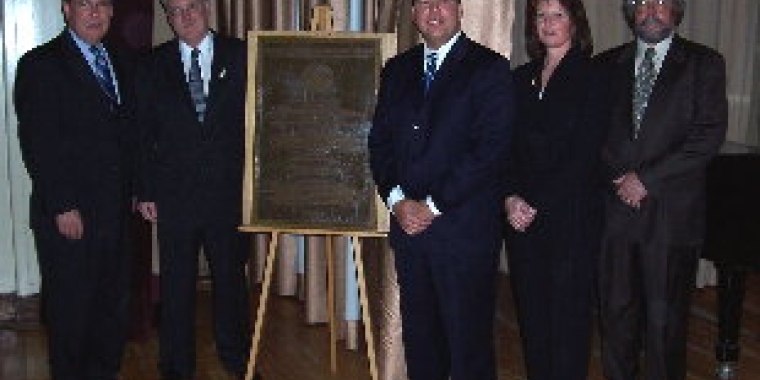
Senate Votes To Save Tax Dollars

The New York State Senate has approved legislation that would overhaul the state’s Medicaid fraud detection effort with the goal of dramatically reducing corruption and waste, and increasing the amounts of money returned to taxpayers.
"With estimates that Medicaid fraud could cost taxpayers billions of dollars each year, we have to bring the program under control, better coordinate our fraud-fighting effort and employ the latest technology to return those savings back to taxpayers," said Senator James L. Seward. "This bill would dramatically reorganize and reform New York’s process of detecting and combating Medicaid fraud and ultimately save state and local taxpayers hundreds of millions of dollars."
"There is no excuse for tolerating fraud in a program that is now the fastest-growing and largest single component of the state budget," Senate Majority Leader Joseph L. Bruno said. "With this bill, we are attempting to restore accountability and integrity to the Medicaid program, and ensure that tax dollars are being used only as they are intended."
New York ranks alone among the nation’s 10 most populous states in spending more on anti-fraud efforts than it recovers, according to the most recent reports filed by states with the federal government.
The legislation (S.3685B) would create the Office of Medicaid Inspector General to consolidate and coordinate the investigation of Medicaid fraud and contribute to the prosecution of people who commit fraud.
The office, which would have an established working relationship with the attorney general’s office and the state Department of Health, would be overseen by an eight member board. The governor, Senate majority leader and speaker of the Assembly would each appoint two board members, the minority leaders of each chamber would each have one appointment.
The office would have a budget of $100 million, which would come from $25 million in Medicaid fraud recoveries, which would leverage over 2 ½ times as much in federal funds. The 2005-06 state budget includes $1 million to initiate creation of the office. New York would continue to qualify for federal anti-fraud funding to defray the cost of the new program.
In addition to streamlining, consolidating and coordinating the state’s effort to combat Medicaid fraud, the legislation calls for the new office to obtain a state-of-the-art, computerized Medicaid fraud detection system that could be integrated with other involved systems to routinely survey Medicaid-related billing services to identifying possible incidents of Medicaid fraud.
The new office would also be able to provide funding and staff assistance to local district attorneys and other entities to aid in restitutions and fraud recoveries.
"This measure builds on the Senate’s record of identifying efficiencies to control the growth of Medicaid without sacrificing quality. Fraud undermines both of those goals by wasting tax dollars and also straining the system to the point where quality is compromised," said Senate Health Committee Chairman Kemp Hannon (R, Garden City), co-chair of the Senate Majority’s Task Force on Medicaid Reform.
"A goal of the Senate’s Medicaid Reform Task Force was restoring accountability to this bloated program that saps taxpayers’ wallets. This legislation would go a long way towards achieving our goal of eliminating waste, fraud and abuse," said Senator Raymond A. Meier (R-C, Western).
"Reducing the cost of Medicaid for local taxpayers has been a long-standing priority for the New York State Association of Counties and our member counties. Addressing fraudulent provider and recipient practices in this important health care program will help improve the overall management of the Medicaid program and reduce costs for taxpayers," said Stephen J. Acquario, executive director of the New York State Association of Counties (NYSAC). "NYSAC commends the Senate for their efforts to address this issue and for taking steps to make the Medicaid system more effective and efficient for recipients, providers and for taxpayers."
The U.S. General Accounting Office estimates that a minimum 10 percent of Medicaid expenses -- and as much as 30 percent -- are diverted through fraud, an amount equal to billions of dollars each year in New York’s $44 billion Medicaid program. But New York’s anti-fraud efforts have recouped only a fraction of that amount, and have lagged those of other states.
Fighting fraud is considered so important to the integrity of the Medicaid system that the federal government contributes 75 percent of the cost of fraud-fighting units in each state, while states fund the balance.
In federal fiscal years from 2001 to 2003, New York’s Medicaid Fraud Control Unit, which prosecutes fraud and recovers illicit gains, posted an average 72 cents in recoveries for every dollar spent by state and local governments on fraud recovery, despite having significantly more staff than other states that recouped much more money. By contrast, Texas recouped five times its anti-fraud spending; New Jersey regained six times its investment.
The Senate legislation would result in additional savings to county and state taxpayers since savings under the program are automatically returned to local governments who paid the bill in the first place.
-30-



